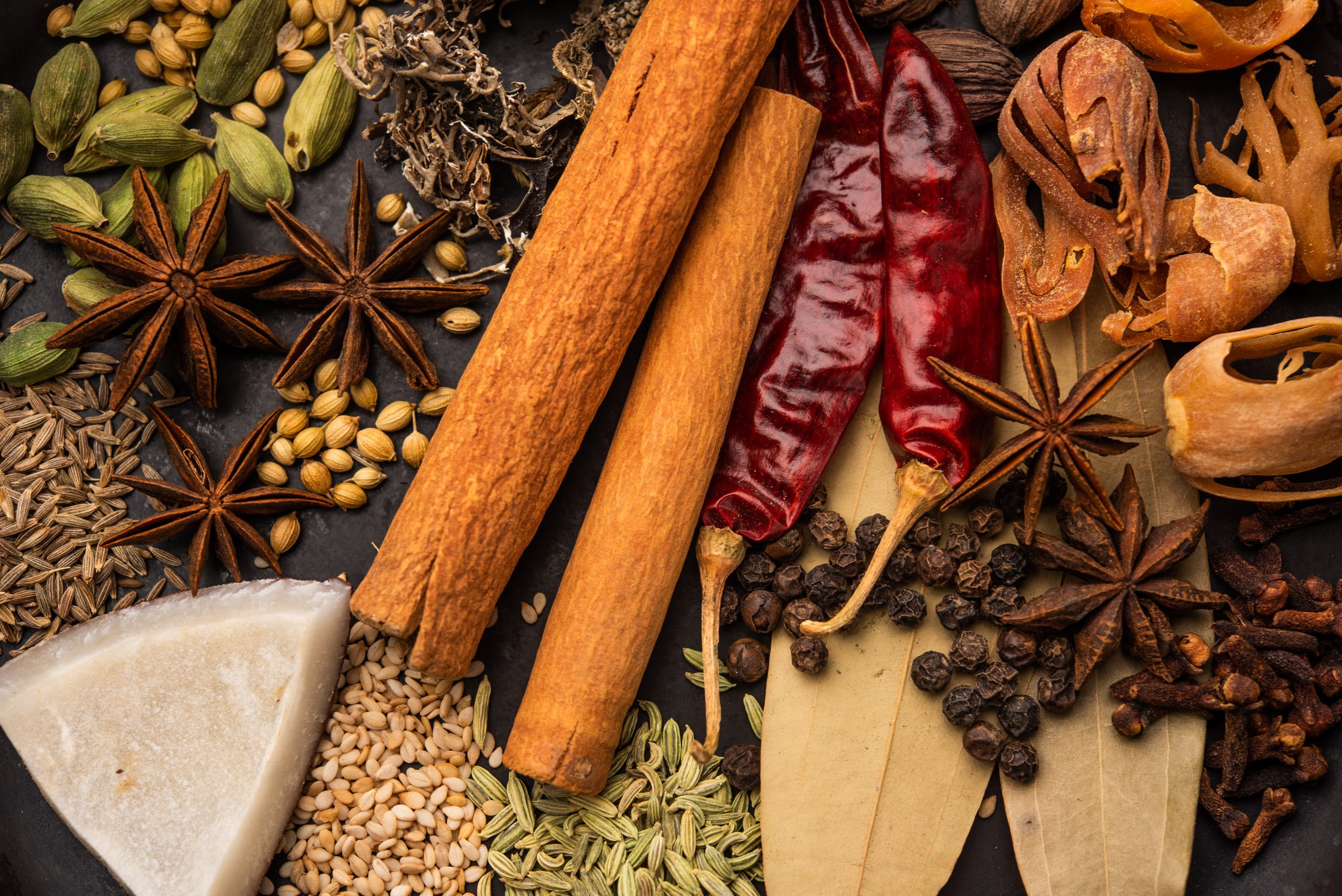The Spice of Life: Essential Spices and Their Impact on Our Daily Lives
When you think of spices, perhaps the first thing that comes to mind is the tantalizing aroma of a home-cooked meal. However, the role of spices in our lives extends far beyond the kitchen. From their health benefits to their cultural significance, spices are an integral part of our daily existence.

Health Benefits: Nature’s Pharmacy
Spices like turmeric, ginger, and cinnamon are much more than just flavor enhancers. These humble kitchen staples are packed with antioxidants, anti-inflammatory, and antibacterial properties. Turmeric, with its active compound curcumin, is known for reducing inflammation and combating chronic diseases. Ginger is celebrated for easing digestive issues, while cinnamon helps regulate blood sugar levels. Incorporating these spices into your diet can be a simple yet effective way to boost your overall health.
Culinary Uses: A Symphony of Flavors
In the culinary world, spices are the magicians that transform ordinary dishes into extraordinary experiences. Whether it’s the earthy aroma of cumin, the sharp bite of black pepper, or the citrusy notes of coriander, each spice brings its unique character to the plate. Spices have the power to evoke memories, transport us to far-off places, and create a symphony of flavors that tantalizes our taste buds.
Cultural Significance: A Rich Heritage
Spices are deeply woven into the fabric of various cultures, particularly in Indian cuisine, where they play a pivotal role. They have historical significance and are often used in traditional rituals and ceremonies. For example, saffron is considered a symbol of purity and is used in religious offerings. The rich tapestry of cultural traditions associated with spices adds an extra layer of depth to their importance in our lives.
Medicinal Uses: Ancient Remedies
Long before modern medicine, spices were the go-to remedies for a variety of ailments. Ayurveda, the ancient Indian system of medicine, heavily relies on spices for their therapeutic properties. Clove oil is used to soothe toothaches, while fenugreek seeds are known to improve digestion. These age-old practices highlight the enduring trust in the medicinal power of spices.
Economic Impact: The Spice Trade
The spice trade has been a cornerstone of global commerce for centuries. Spices like black pepper and cardamom were once as valuable as gold, driving explorers to embark on perilous journeys to source them. Today, the spice trade continues to be a significant economic activity, supporting the livelihoods of millions of farmers and traders worldwide.
Cosmetic and Perfumery Uses: Fragrant Delights
Beyond the kitchen and medicine cabinet, spices find their way into our beauty routines and perfumes. Ingredients like vanilla, clove, and nutmeg are prized for their aromatic qualities and are used in the creation of fragrances and skincare products. These natural wonders add a touch of luxury and sensuality to our daily lives.
Preservation: Nature’s Preservatives
Spices have been used to preserve food for centuries due to their antimicrobial properties. Salt, once a rare and expensive commodity, was used to cure meats, while spices like mustard and chili pepper help inhibit the growth of bacteria. This natural method of food preservation is a testament to the enduring utility of spices in our daily lives.
